Keeping invasive species and other weeds out of Harrison Meadows' garden is important, said environmental stewardship coordinator Heather Surface, because the plants are both native to the area and specifically selected to be "pollinator-friendly." That's why monarch caterpillars like to make their home there.
Park cleanups get residents using their green thumb for a good cause
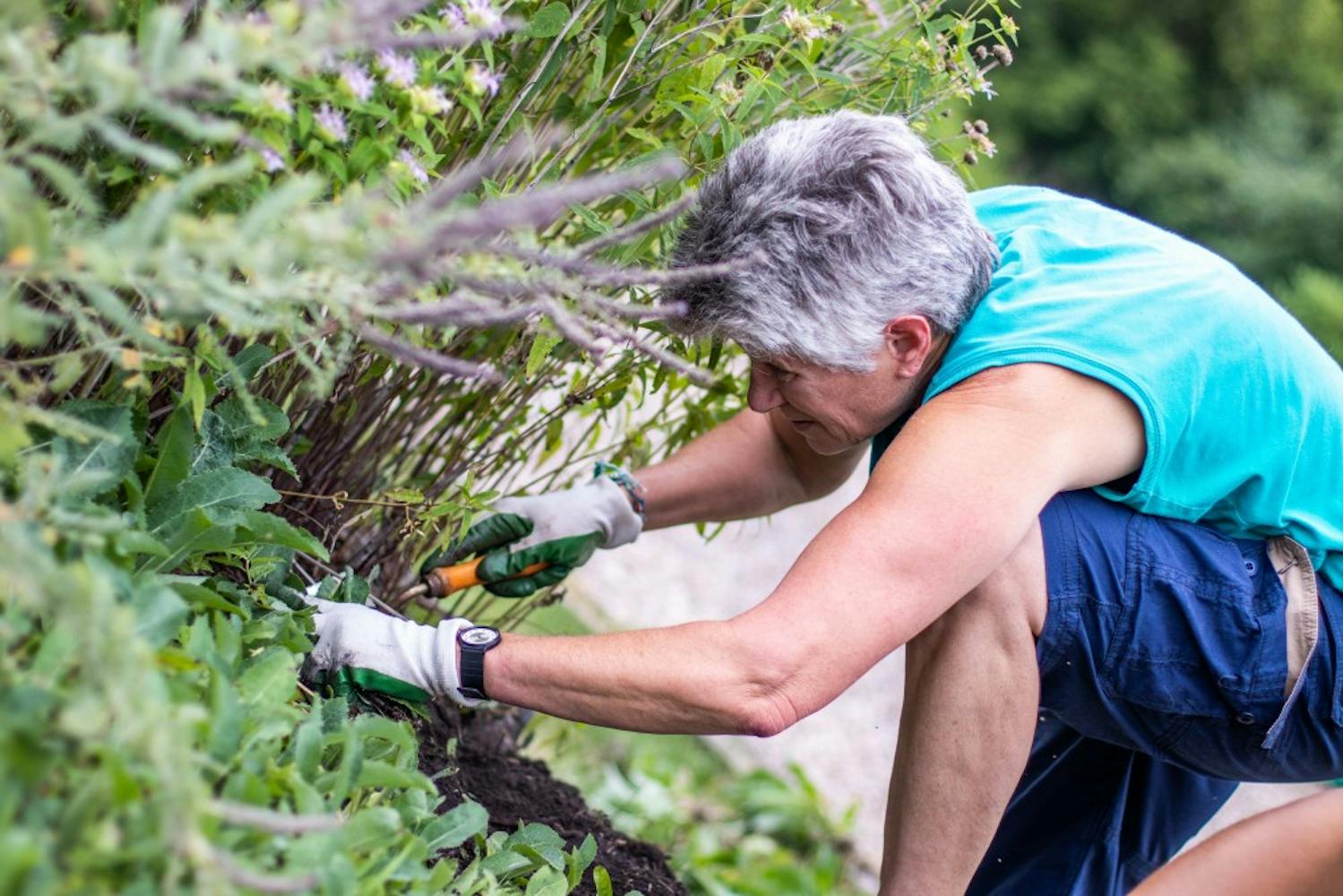
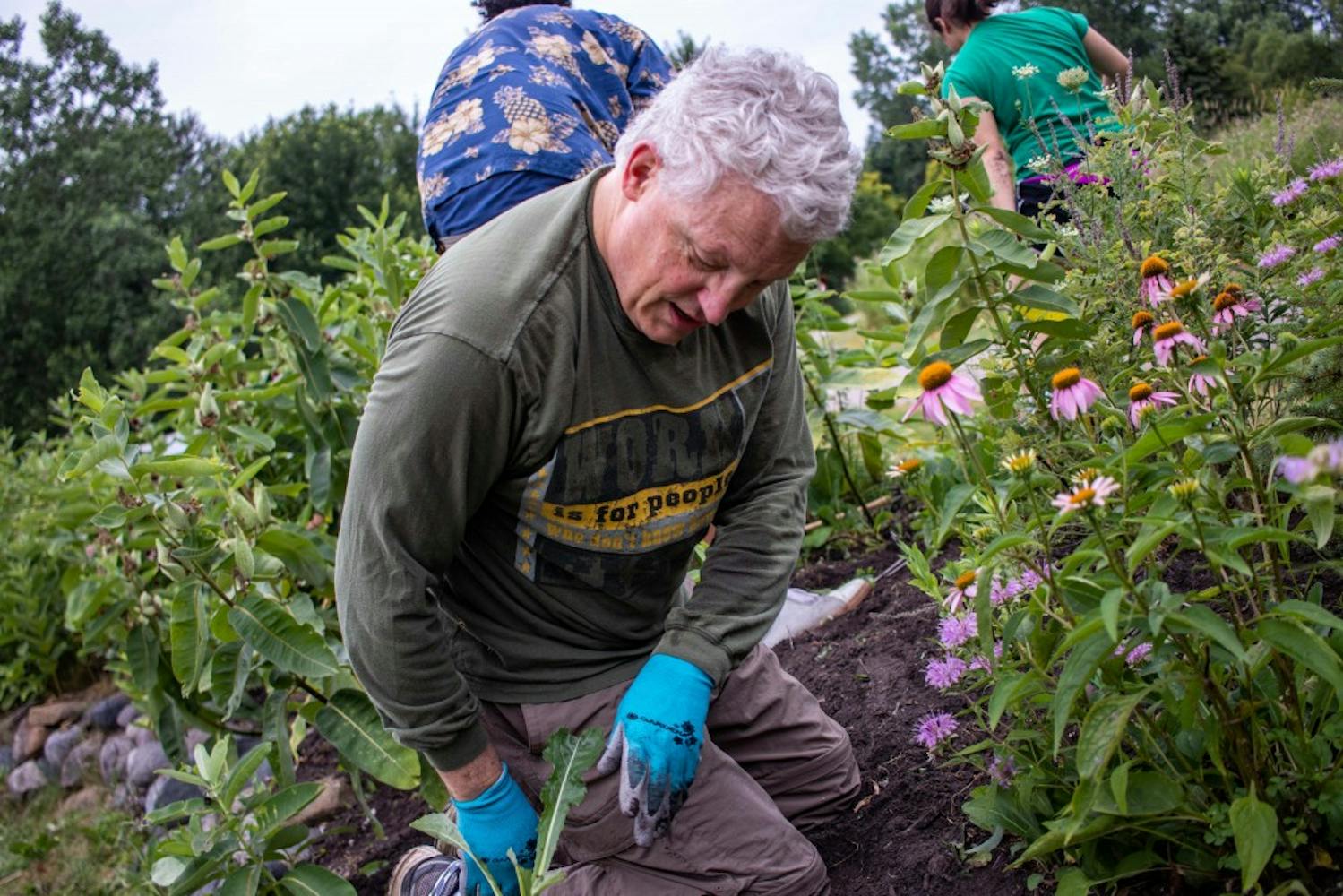
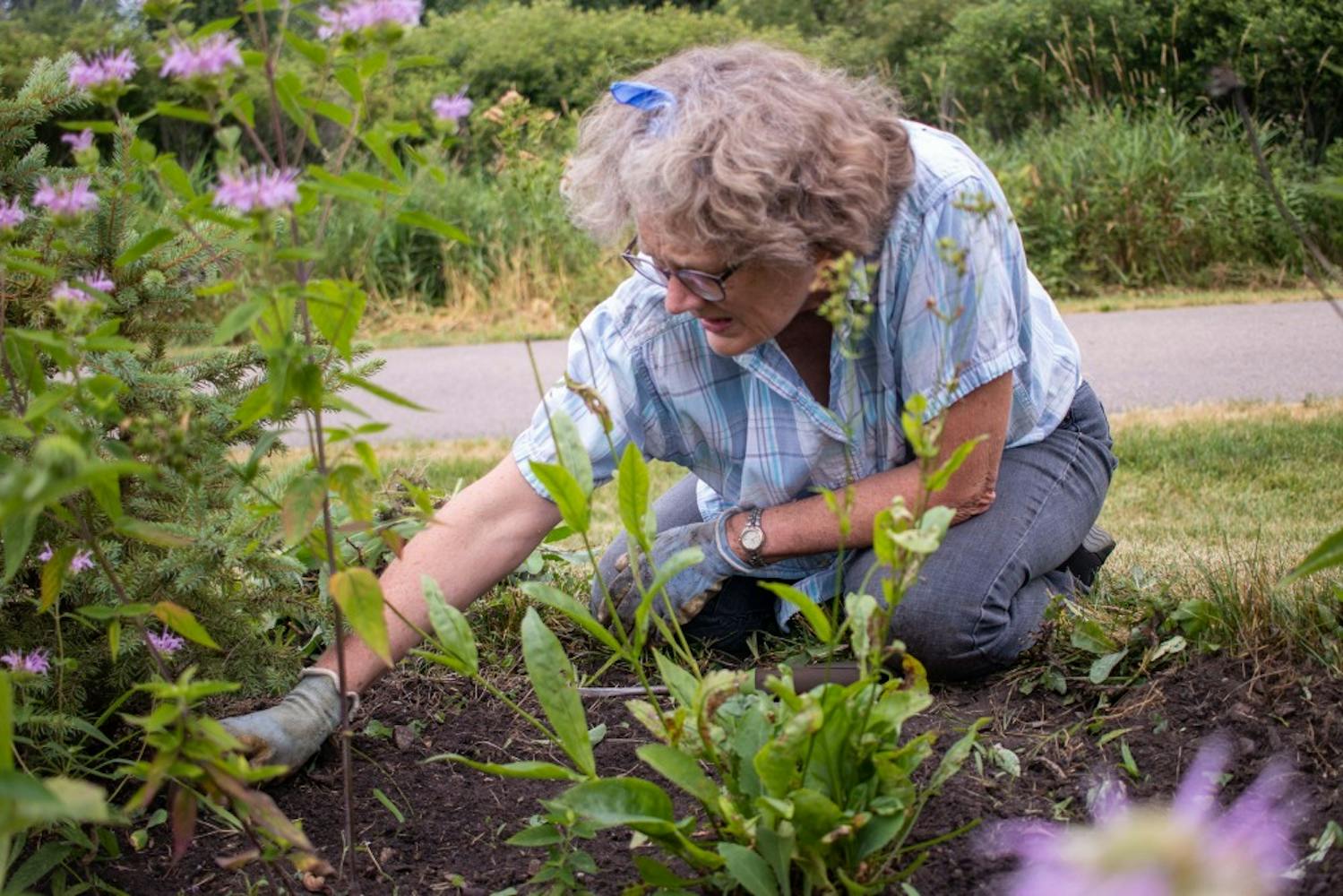
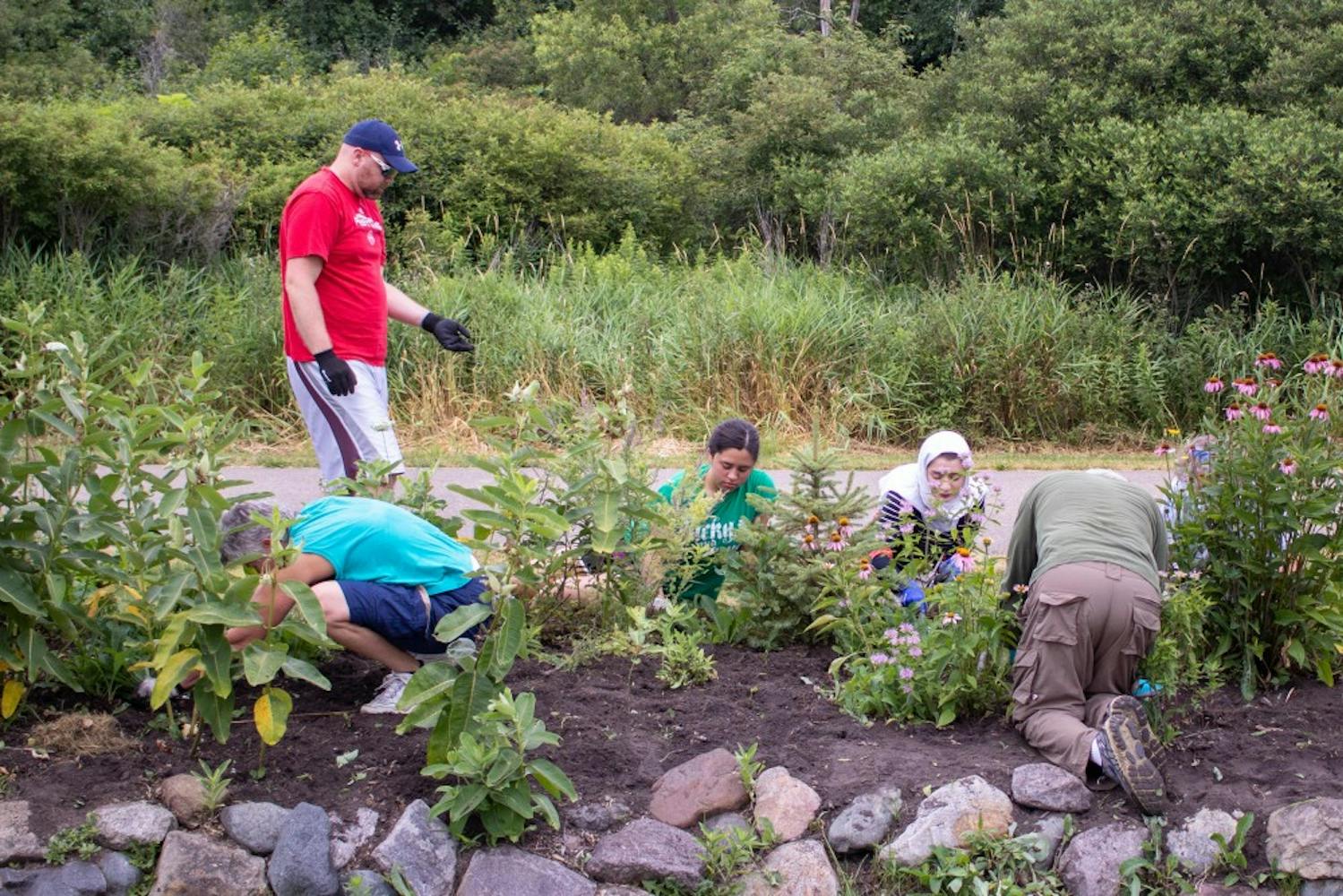
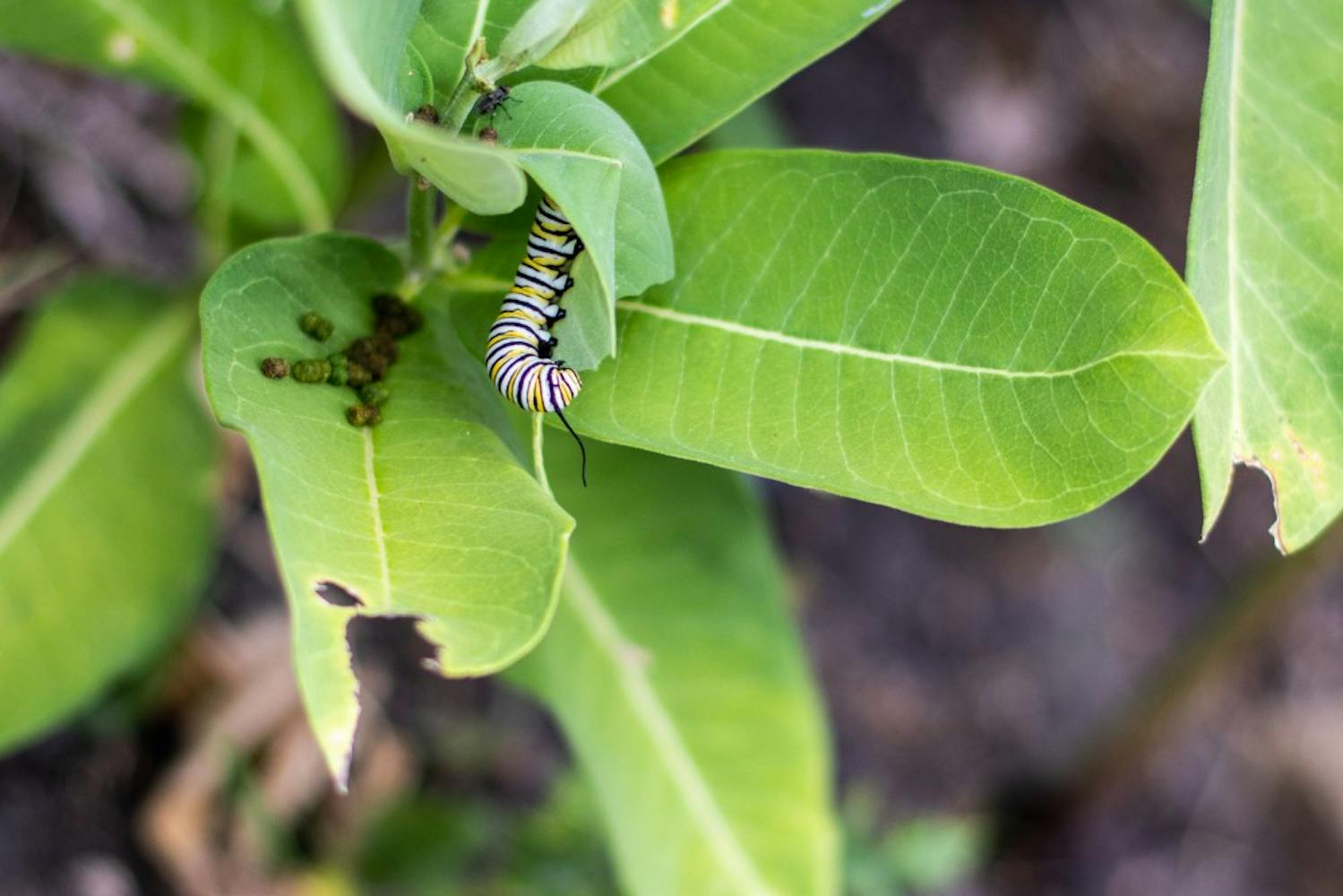
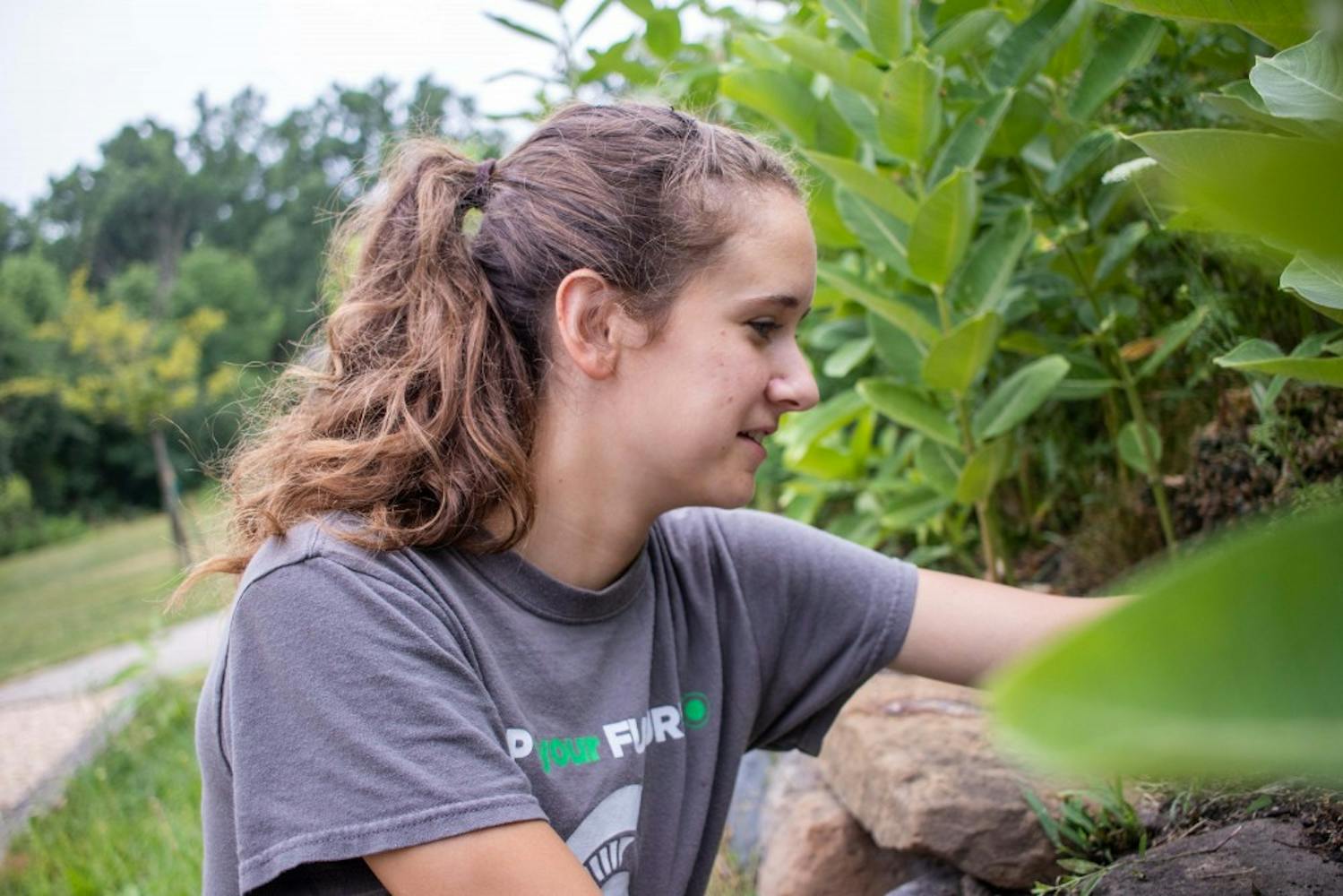
That fat friend was only one of the reasons that volunteers at Saturday's gathering of the Environmental Stewardship Program were in such a friendly mood, catching up and shooting the breeze with fellow residents as they worked to rid Harrison Meadows Park of weeds and pick up trash along the Northern Tier Trail.
The weeds that volunteers work to uproot aren't just nuisances. They're often invasive species like garlic mustard, which can choke out other plants and overtake a garden or park or even throw off the balance in an ecosystem.
Environmental geography senior Jeralyn Poe, an intern with the program, said she didn't know much about invasive plant species before taking the position. She said she's glad to have the opportunity to intern with the city because it gives her real-world experience around the topics she's been learning at MSU.
Beyond just the park cleanup days, Poe's job involves mapping out what and where invasive plant species have been removed to track the city's success at keeping out the intruders. That can help city officials see exactly where native plants have re-established their stronghold, and where to focus their removal efforts next.
"I've been studying all of this stuff in the classroom, but now I've gotten out here and you can visualize it more," Poe said. "I can see the impact that I'm having."
Keeping invasive species and other weeds out of Harrison Meadows' garden is important, said environmental stewardship coordinator Heather Surface, because the plants are both native to the area and specifically selected to be "pollinator-friendly." That's why monarch caterpillars like to make their home there.
"By taking care of this garden, it's not only beautifying this park, it also is allowing us to have a seed bank to move to other parks where we've removed invasive plants," Surface said. "We don't have to keep buying more plants, because if you buy native plants it's pretty expensive, but if we can grow our own it saves a lot of money."
The park cleanups usually happen once a month, but June's event at Henry Fine Park was canceled due to a downpour. Surface said August is typically skipped as well, but that residents can visit the stewardship program's website to stay updated on how to join in.
A few drops of rain fell on Saturday, but the cloudy skies weren't enough to deter residents from coming out as about ten volunteers offered their services.
Resident Sylvia Morse, who has been attending the park cleanups for about three years (or four or five -- "it's been a while," she said), helps out because she sees East Lansing's parks as an "asset to the community." She said the number of people who come out to be environmental stewards varies from month to month.
Whether a handful of volunteers come out on a gloomy day like Saturday, or 40 people come help when organizations or fraternities join in as part of a service day, Morse said Surface is always there to assist and make sure East Lansing's parks stay in the best condition they can.
"Heather's always been my fearless leader," Morse said. "Without Heather I wouldn't know a weed from a tree."
READ MORE
Support student media! Please consider donating to The State News and help fund the future of journalism.






